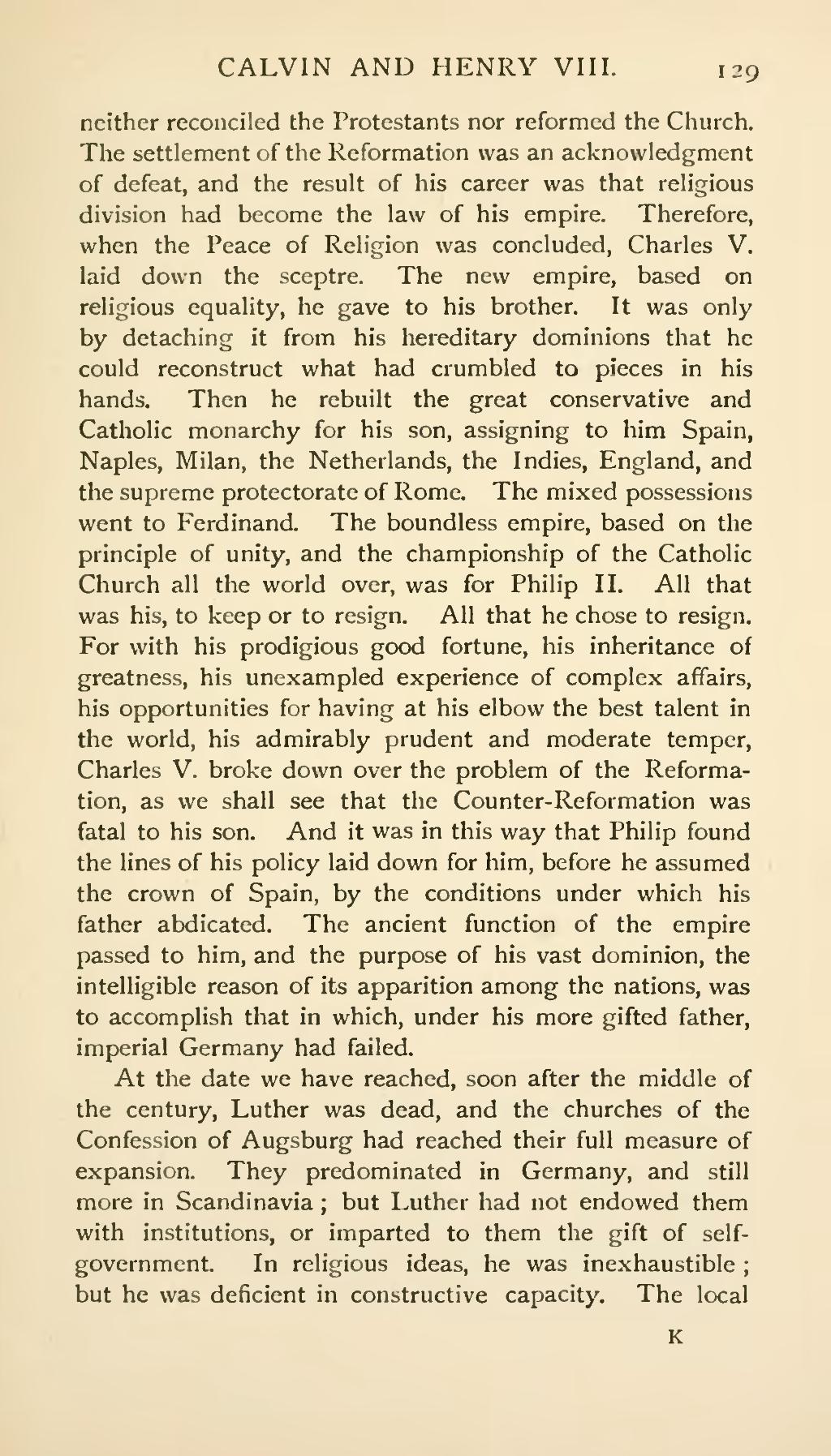neither reconciled the Protestants nor reformed the Church. The settlement of the Reformation was an acknowledgment of defeat, and the result of his career was that religious division had become the law of his empire. Therefore, when the Peace of Religion was concluded, Charles V. laid down the sceptre. The new empire, based on religious equality, he gave to his brother. It was only by detaching it from his hereditary dominions that he could reconstruct what had crumbled to pieces in his hands. Then he rebuilt the great conservative and Catholic monarchy for his son, assigning to him Spain, Naples, Milan, the Netherlands, the Indies, England, and the supreme protectorate of Rome. The mixed possessions went to Ferdinand. The boundless empire, based on the principle of unity, and the championship of the Catholic Church all the world over, was for Philip II. All that was his, to keep or to resign. All that he chose to resign. For with his prodigious good fortune, his inheritance of greatness, his unexampled experience of complex affairs, his opportunities for having at his elbow the best talent in the world, his admirably prudent and moderate temper, Charles V. broke down over the problem of the Reformation, as we shall see that the Counter-Reformation was fatal to his son. And it was in this way that Philip found the lines of his policy laid down for him, before he assumed the crown of Spain, by the conditions under which his father abdicated. The ancient function of the empire passed to him, and the purpose of his vast dominion, the intelligible reason of its apparition among the nations, was to accomplish that in which, under his more gifted father, imperial Germany had failed.
At the date we have reached, soon after the middle of the century, Luther was dead, and the churches of the Confession of Augsburg had reached their full measure of expansion. They predominated in Germany, and still more in Scandinavia; but Luther had not endowed them with institutions, or imparted to them the gift of self-government. In religious ideas, he was inexhaustible; but he was deficient in constructive capacity. The local
